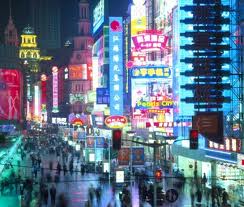A naive person could argue that China is just having the kind of bubble America had in the 2000s; but that isn’t credible. You can read more details in this recent Forbes article. China doesn’t have the kind of complicated subprime mortgages that we had. Buyers from all income levels are expected to put at least 20 percent down there, whereas people here were able to put as little as zero down.
China’s housing market is improving simply because its economy is improving by a similar margin. China’s economic growth continues to be one of the most phenomenal we’ve seen in recent history, and it looks like their hot streak will continue.
Since the new leaders took office in March, property prices have been on the rise. They rose in July by an average of 6.7% and in August by 7.5%. In a 70 city survey, 62 cities reported an increase in prices in July, followed by 66 in August. The August price spike was the highest since December 2010.
China’s growth in many sectors throughout the years can be strongly attributed to the government slowly chipping away at restrictive policies. This situation is no different. The government promised to slow down property price increases as they’ve done for years; but they’ve been tolerating price increases instead. The Chinese government want prices to inflate so that builders could build and the economy could grow.
In some places, policies actually became more restrictive. For example, earlier this year, the government implemented real estate transaction taxes in Shanghai and Beijing. But their real estate prices still soared.
There is a concern however that a rise in housing price isn’t good for the economy, because it might constrain room for lower interest rates. Why would somebody lend you money for a low rate if they could get a better return from buying and selling a house? To avoid this, the government will probably want to stop housing prices from increasing to more than 8 percent.
Thanks for stopping by. Check back again soon for more news from the world of real estate.
